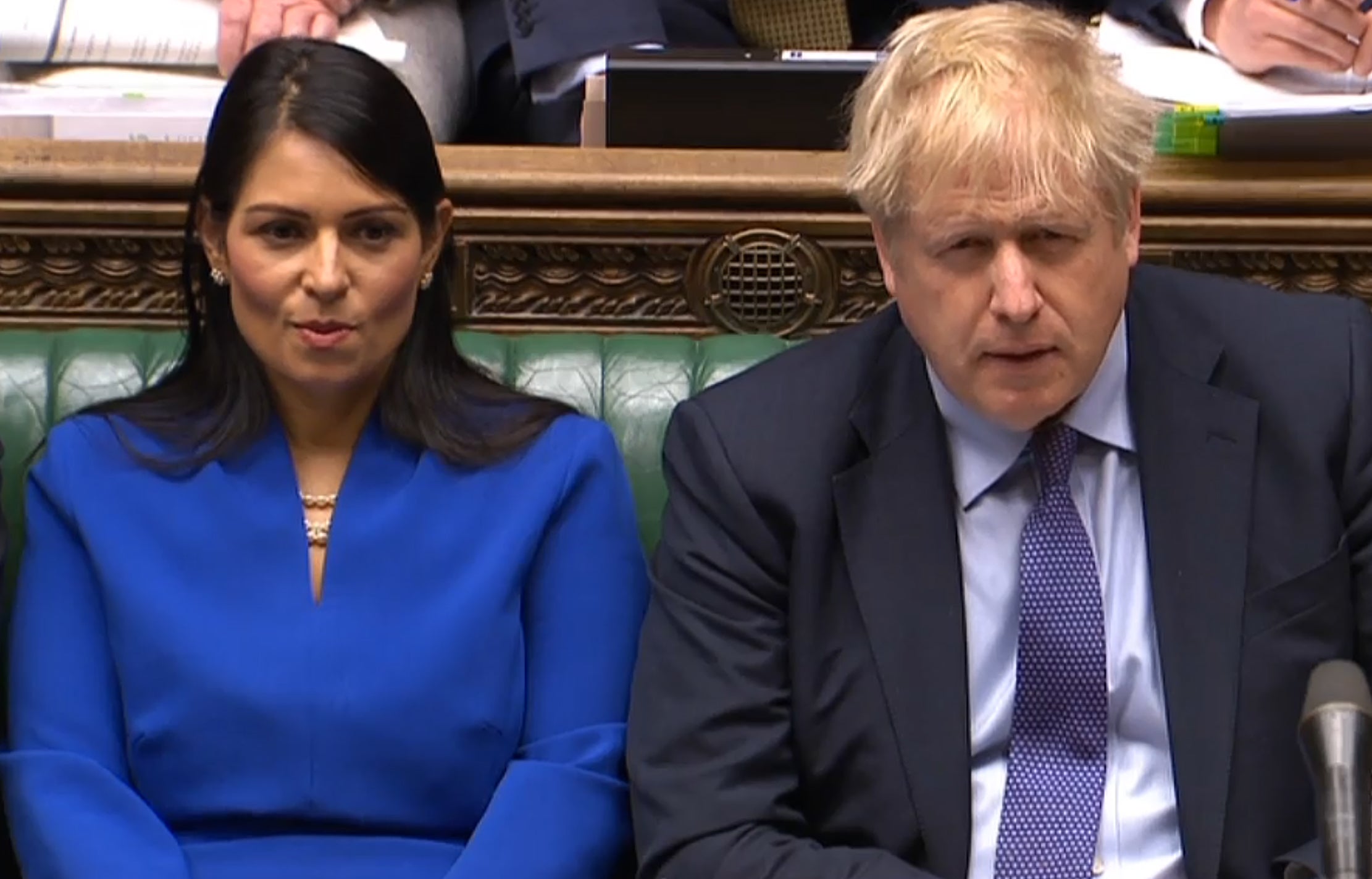How Boris Johnson’s hypocrisy could come back to bite him
From Dominic Cummings to Priti Patel, this government is failing to practice what it preaches – and the public has noticed, writes Sean O’Grady


The Johnson administration, almost a year after it gained its thumping parliamentary majority, has done little to dispel people’s cynical mood about politics. The prime minister’s latest letter to ministers and civil servants, issued jointly with the cabinet secretary, Simon Case, looks a little cynical, to say the least.
The letter sets out, once again, a zero tolerance approach to bullying, urging all concerned to create an atmosphere of “mutual trust and respect between politicians and their officials”, in which there will be “no place for bullying”. In that respect this missive merely restates the prime minister’s personal foreword to the ministerial code which plainly states: “There must be no bullying and no harassment.”
Some, of course, will prefer to judge the government by its actions rather than its words, and the restatement of sentiments that have been ignored does not restore their force. Priti Patel, the home secretary, has been found in breach of the ministerial code, yet the prime minister has chosen to use his discretion to override his own ministerial code and dismiss the judgement of his independent advisor, Sir Alex Allan, who has since quit. It has been an unedifying affair, and sheds light on two aspects of the developing behaviour and reputation of the government.
The first is that this crop of ministers find the constitutional and political constraints on their absolute freedom of action irksome - and they are going to do their best to push back on them. Hence the setting aside of the independent advisor on ministerial conduct and the restoration of an older tradition of unlimited prime ministerial discretion over ministerial appointments and management.
The most obvious and dramatic example, though, is Brexit. “Take back control” has come to mean take back control by ministers. They prefer absolute sovereignty over one medium-sized economy, Britain, rather than sharing sovereignty and enjoying a significant say over the governance of a 28 nation global economic superpower, the EU. In reality, of course, practical sovereignty is limited, and costly, outside the EU customs union and single market, as the country will soon discover. Nonetheless it is true that a British business secretary, will no longer have to pay direct attention to “Brussels”.
Much the same goes for the pushback against the “disaster” of devolution and grab for central power in the Internal Market Bill. The Conservative manifesto last December also gave due notice that the BBC and the the Supreme Court will also be roughed up in the coming years. “Lefty lawyers” have come under rhetorical attack, and human rights look to be subject to subordination to executive power. Dominic Cummings may be gone, but his ambitions for the “people’s government” to acquire more power lives on.
Yet Mr Cummings also leaves behind his own contribution to the government’s unfortunate tendency to hypocrisy. “One rule for them, another rule for us” is the impression given by multiple lockdown violations (Mr Cummings was not alone), and the Patel bullying affair. The image of a “chumocracy” of overpaid jobs for underperforming cronies and lucrative contracts for mates has also added to the impression that the government is out of touch with hard-pressed voters and public sector workers facing a pay freeze.
Mr Johnson is thus wise to counsel his colleagues in parliament not to accept the latest proposed pay rise, even if, ironically, it has been mandated by an autonomous agency, the Independent Parliamentary Standards Authority.
The “people’s government”, a phrase not heard so much these days, has managed to achieve surprisingly robust poll approval ratings during this crisis, but the opposition attacks in competence and hypocrisy may be starting to gain some traction. If the next stages in the Covid and Brexit crises follow previous experience, the government’s standing and self-confidence will continue to erode.
Subscribe to Independent Premium to bookmark this article
Want to bookmark your favourite articles and stories to read or reference later? Start your Independent Premium subscription today.

Join our commenting forum
Join thought-provoking conversations, follow other Independent readers and see their replies
Comments